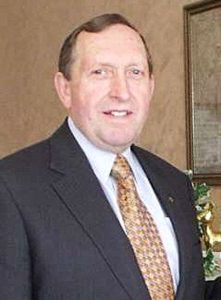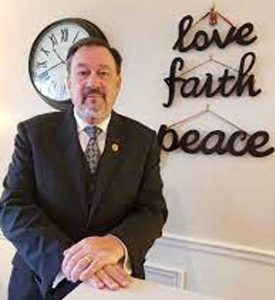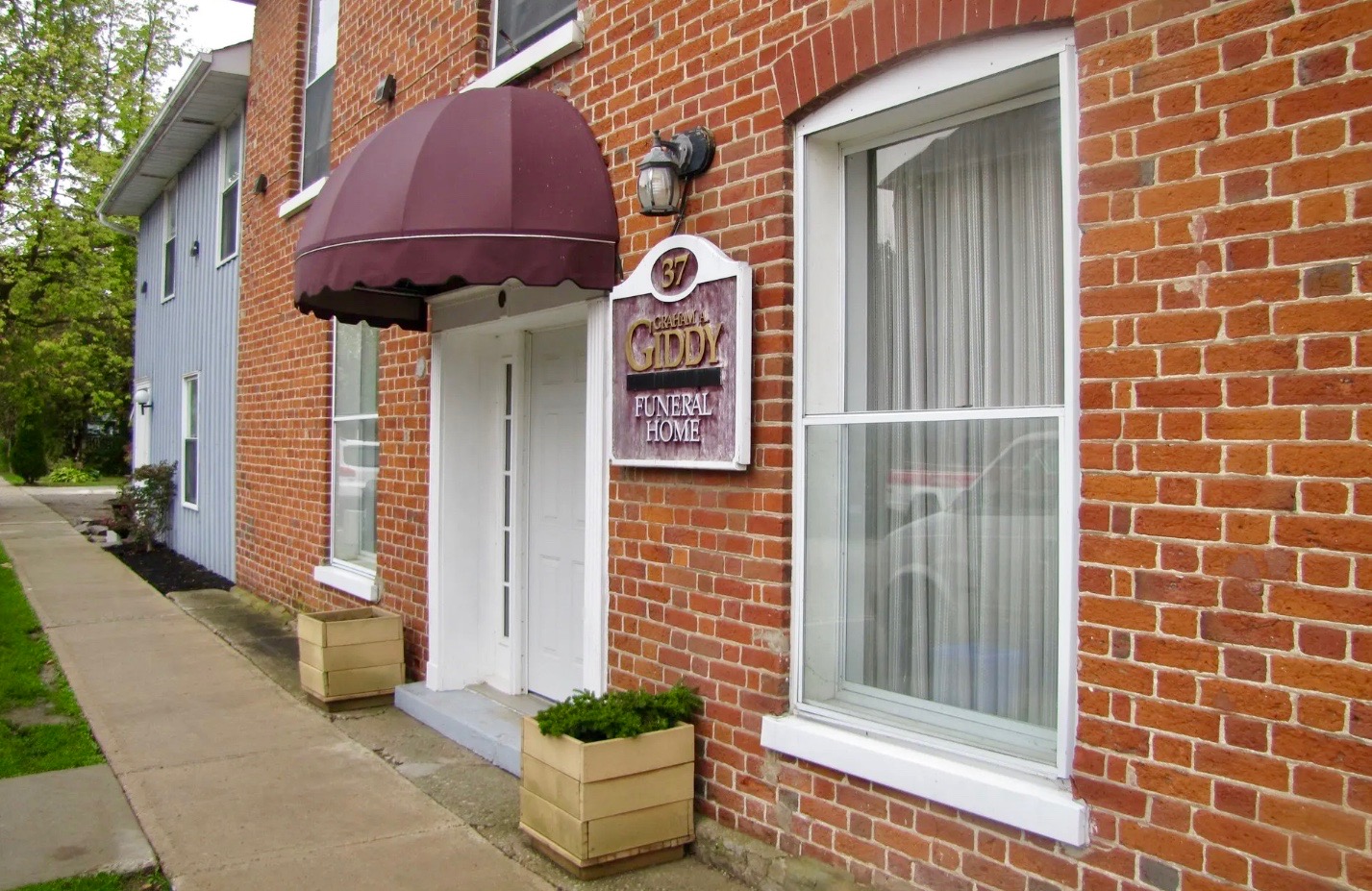WELLINGTON COUNTY – It might seem an unusual career path right out of high school, but both Graham Giddy and Allan Lee have found being funeral directors to be deeply meaningful, satisfying, and important work.
And they each received recognition from the Ontario Funeral Service Association in 2022 for 50 years in the business.
In conversations with the two men – Giddy, owner of Giddy Funeral Homes in Fergus, Elora and Waterloo, and Lee, owner of the Hardy-Lee Funeral Home in Harriston – it seems these two have been living parallel lives.
They met in 1969 at Humber College in the funeral service program and became friends. They went their separate ways after college, gaining experience working in funeral homes across the province.
Each wound up in Wellington County and each jumped at the chance to own their own funeral home when the opportunity came along.
Giddy said the attraction for him is being part of people’s lives during the most difficult of times.
“People come here totally broken and confused,” he said. “They don’t even know what questions to ask.
“Our job is to help guide them through this journey, not to steer them to options.”

ALLAN LEE
Lee acknowledged he sees people at the worst time of their lives, but that just motivates him to deliver the service that people want.
And he’ll go to great lengths to do that.
“We see people at the start of the grief journey. I want to give them something they’ll remember and take comfort in,” Lee said.
Looking back over 50 years, funeral services have changed, both men said – a direct reflection of the changing diversity of the country.
Funeral directors today must be prepared to handle funerals of any religion, any language, and any culture.
And the pandemic changed funerals as well.
COVID-19 was extremely problematic for funeral homes as the number of people allowed indoors shrunk to 10 – including funeral home staff.
“We had to adjust to the rules of the day,” Lee said. “Some days it was 10 people, then 20 people could attend.
“But no lunches, no reception, no visitations. From there we kept adjusting.
“We would still try to accommodate people within the guidelines, but it was very difficult in the early days and months.”
That’s when livestreaming funeral services took hold and that’s a trend that will likely stay long after COVID has disappeared.
“It works pretty well,” Giddy said. “It allows people to be there and participate at a distance. We also put (the services) on our website so people can revisit it.”
Both men lived above their respective funeral homes and raised their families there.
“Our kids knew what was going on,” Lee said. “They knew when to be quiet.”
“It was like the show Six Feet Under,” Giddy said. “Death was around us. But it just makes life feel more precious and valuable.”
Life as a funeral director is disruptive. Like doctors and paramedics and fire fighters, funeral directors also get calls in the middle of the night.
They have to duck out of school recitals because there’s been a death.
They do get called to accident scenes and see some gruesome sights.

GRAHAM GIDDY
Giddy said post-traumatic stress disorder is an occupational hazard in the funeral business. He said he was lucky that his wife and children understood and accepted the disruption. And he’s immensely proud that his two sons are taking over the business.
“In a way, my career became a family career,” he said. “I have a lot of friends who are emergency responders.
“It helps that I can share stories with them. It lets you rebound from your emotions and that helps keep you steady.”
The family-run funeral home is a dying breed, Lee said, adding he’s grateful his kids are taking over his business.
When family isn’t interested, the small operations tend to be bought up by larger corporations and that’s a loss to the community, Lee said.
“It’s hard to find someone to take over, so people are selling to corporations.
“But in those scenarios, you lose the connection to the town. You lose the personal touch. You have guys who just want to work their shift,” he added.
“Small-town funeral homes are different from the big ones in Toronto,” Giddy said.
“Here, you get a little more involved with the families you see. In some cases, I’ve dealt with three generations of a family.”
Being a funeral director is not for everyone. It takes patience, a calm demeanour, and the ability to steer the ship while remaining in the background.
“You don’t know at the start if it’s for you,” Lee said. “It takes a while to realize you have the people-skills for it.
“As you get older you get smarter and more compassionate.
“You try to be good to people, work with people, but most important, you have to listen to people. Once you understand their needs, you can work accordingly.”
Giddy said he has some special memories of particular situations where he was able to help a family. Like the time a girl died at home, and he allowed her parents to help move the body.
“They were so grateful,” he said. “The small things mean the most sometimes.
“It’s those things that keep us going back day after day. And that’s the bottom line for me – I would not want to be anything else.”



